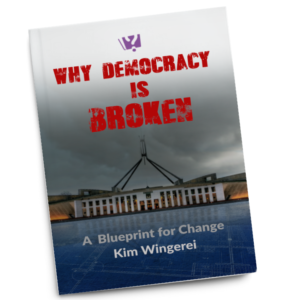
ASIC – the Australian Securities and Investment Commission – manages the register of businesses as part of its remit. If you have a company it will charge you $267* per annum for the privilege. But whatever you do, don’t pay that bill late! Miss the due date by a few months and the late charge is a whopping $340 dollars – or 130%. What’s the scam?
The scam is, because they can! ASIC is a cash cow for the Government, A huge money spinner, ASIC is an independent Australian Government body set up to administer the Australian Securities and Investments Commission Act 2001 (ASIC Act), carrying out most of its work under the Corporations Act. Their focus is on regulating financial services, to maintain “market effectiveness” and ensure companies does the right thing by consumers.
For instance, in July 2018 ASIC presented a damning report targeting four consumer credit card providers and their interest rates and late payment fees.
“ASIC found that while these four credit providers are not breaking the law, they are charging their longstanding customers more interest than they should have been, and their conduct is out of step with the rest of the industry.”
The report referred to high interest rates being above 13% pa., one tenth of what ASIC itself charges late payers. But nobody regulates the regulator, they can set their own fees and charges.
As they do, generating approximately $1.4 billion in revenue for the Government in fees and charges. Of that, it receives $421 million to cover its operating costs. In effect, it is, in effect, a $1 billion tax on Australian companies, including those 130% late fees.
Usury (/?ju???ri/)[1][2] is the practice of making unethical or immoral monetary loans that unfairly enrich the lender. The term may be used in a moral sense—condemning, taking advantage of others’ misfortunes—or in a legal sense, where an interest rate is charged in excess of the maximum rate that is allowed by law. A loan may be considered usurious because of excessive or abusive interest rates or other factors defined by a nation’s laws. Someone who practices usury can be called an usurer, but in contemporary English may be called a loan shark. (Wikipedia)
Henry VIII put a stop to usury in England in 1545. Who can stop ASIC in 2021?
—
* The annual fee recently increased to $273


